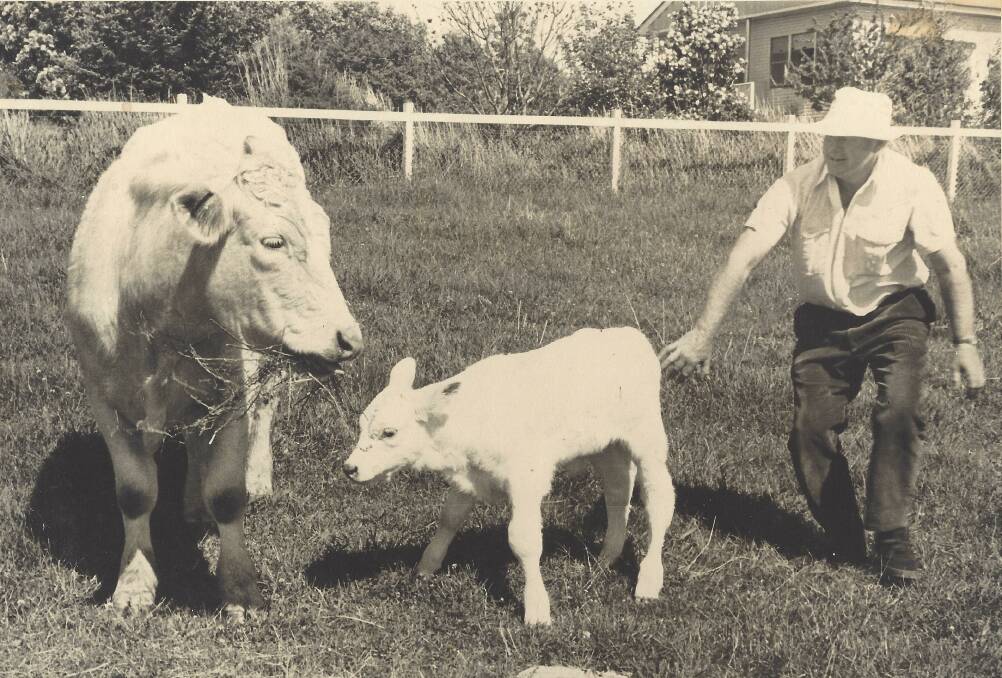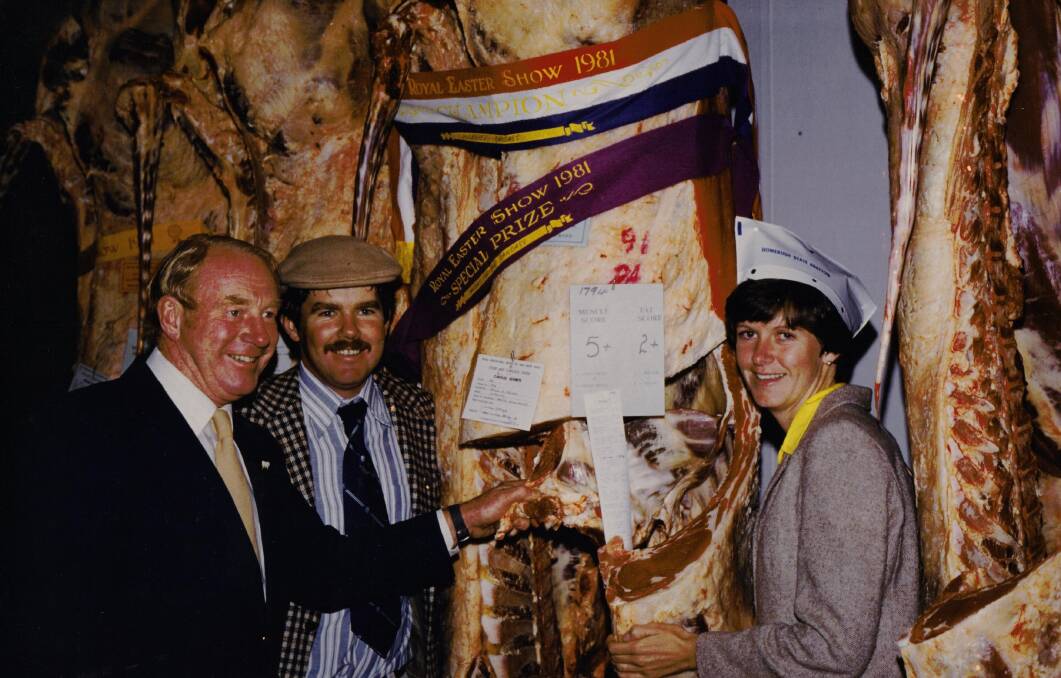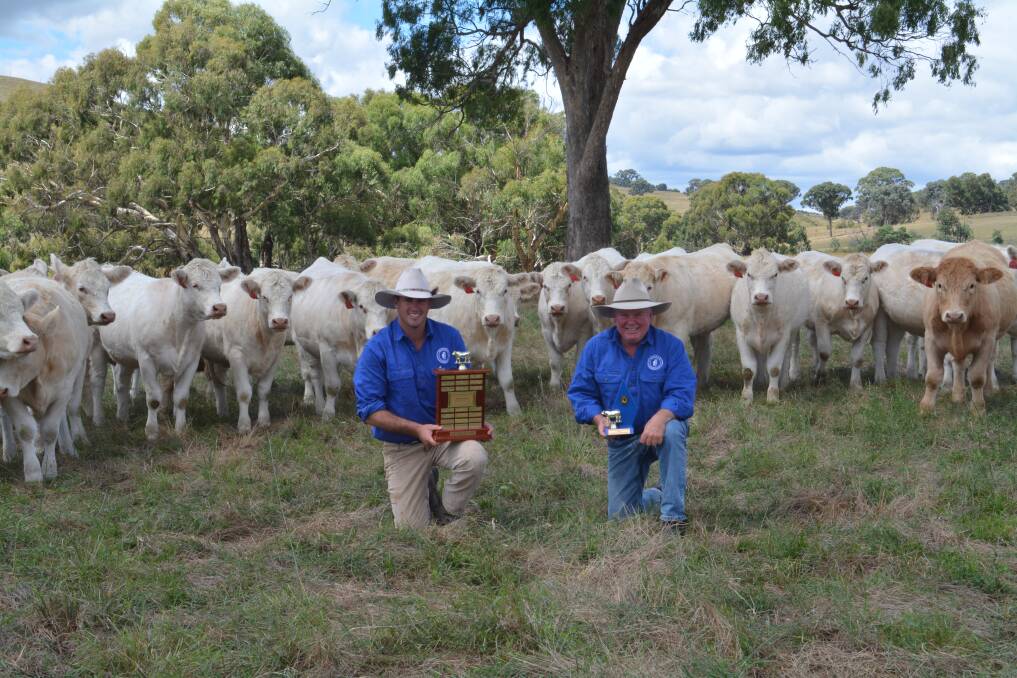Rosedale Charolais stud using trailblazing genetics for more than 50 years

This is branded content for Rosedale Charolais Stud
One of Australia's foundation Charolais studs, Rosedale Charolais stud commenced in 1970 and is credited with the largest polled Charolais herd in NSW, as well as laying claim to the title of the longest running Charolais stud in NSW today.
Established in 1971 by Robert (snr) and his wife, Patricia Millner along with son Michael Millner, the family run operation is multi-faceted, and represents three generations of the Millner family.
Michael and Jenny Millner are involved with the stud and commercial breeding operations at Millthorpe and their Coonamble property, Glenulla, which the family has owned since 2015.

Their son, James Millner oversees the stud and commercial breeding operations, on their Blayney property, Rosedale, purchased in 1959 and where their Charolais stud originated.
James' brother, Robert, is in charge of the commercial breeding operations and cropping located at their Geurie property, Geurie Homestead, which was acquired in 2006.
James Millner said his family were one of the first to use Charolais genetics in Australia.
"It started with the importation of 16 Charolais cross Angus heifers from New Zealand in 1971," Mr Millner said.
"As a mixed sheep and cattle farmer, my grandfather saw the Charolais breed as an ideal way to improve growth rates as well as carcase improvement, similar to the way the Dorset was used for crossbreeding in the sheep industry," he said.
"Charolais genetics were used since 1971 and the first purebred calf born on Rosedale was in 1974, Rosedale Jolly Jim, out of Sundowner Ranches Honor (imported from New Zealand) by the French AI sire Sucre."
Mr Millner said the Charolais breed was the ultimate terminal breed to be used in cross breeding.
"To us the ideal animal combines the best of both worlds whether it be Charolais/Angus cross or Charolais/Santa Gertrudis cross, or any other crosses. It's about combining the strength of all breeds to gain an advantage in the resulting calf," he said.
"Charolais have evolved continuously since they first came to Australia and we find them now to have wonderful temperaments and still wonderful growth rates with terrific carcase quality."
Initially sourcing genetics from leading New Zealand and French herds, Rosedale purchased American and Canadian genetics from the late 1970's onwards.

"The early challenges of the breed concerned high birth-weights and low calving ease from highly muscled traditional French genetics," Mr Millner said.
"Rosedale has focused on breeding a Charolais type suitable for Australian conditions and crossbreeding with British or Bos Indicus- based cows. This has meant utilising American, Canadian and New Zealand genetics with some levels of French influence," he said.
"In the late 1970's the nucleus of a polled herd had evolved and now 100 per cent of our breeding herd is polled and 80pc of the bulls we breed today are homozygous polled."
The core breeding objectives of Rosedale has always been to be commercially relevant.
"We have always run a commercial program along side the stud program to ensure we have our finger on the pulse and stay in touch with market requirements," Mr Millner said.
"We aim to breed a Charolais animal with moderate birth, strong growth traits and strong carcase traits with a focus on fat cover for finishing on both grass and grainfed systems."
One of the biggest challenges faced by Rosedale has been the emergence of a price premium dependant on the colour of the animal's hide.
"To overcome this we have started breeding Black Composite bulls which are 50pc Angus and 50pc Charolais. We have seen a greater use of Red Factor Charolais genes in recent years which are capable of producing a black calf when crossed with an Angus cow," Mr Millner said.
"There has also been a shift towards meat quality over quantity and we have made a significant effort in the last 12 years to focus on intra-muscular fat in our breeding herd, whilst being very careful not to sacrifice any growth or other important carcase traits," he said.

Mr Millner said his family had enjoyed many proud moments over the past 50 years.
"A real highlight has been our constant ability to prove our breeding program commercially," he said.
"Entering and competing in carcase competitions has been going on since the inception of the stud and it makes me proud that Rosedale genetics are still performing very well.
"In 1975 my grandfather and father were thrilled to win Grand Champion Carcase at the Homebush Hoof and Carcase show run by the Australian Meat board against 500 other entries.
"In recent times we have been very proud to win carcase and feedlot competitions run by the RNA, Sydney Royal Show and the NSW Beef Spectacular."
Mr Millner said his father ran the stud from the late 70's for 40 odd years and during much of this time the show ring was as important for marketing as the internet was today.
"Dad enjoyed many successes in that period including exhibiting the Interbreed Bull at Beef '94 in Rockhampton, as well as major Interbreed Champions at the Sydney, Melbourne and Brisbane Royal shows," he said.
The Millner family holds its annual on-farm bull sale in the third week of May, offering Charolais bulls, Charolais/Shorthorn Composite bulls and Charolais/Angus bulls as well as a selection of stud females.
"We also sell paddock bulls privately at all times pending supply. Commercially our cattle are sold directly to a Coles Grassfed program as well as certain feedlots from time to time," Mr Millner said.
"I'm really excited about some of the bulls we, along with some of the other Australian stud breeders, are producing and feel the modern age Charolais have a real place to play in the future of beef production in Australia," he said.
"I love seeing an even line of Charolais crossbred cattle that combine thickness, softness and growth for age. When you get a Charolais influenced animal done right there is simply nothing better."
This is branded content for Rosedale Charolais Stud


